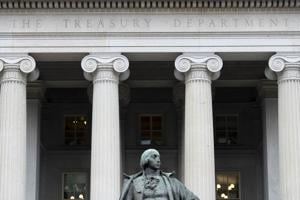
MEXICO CITY — In a significant financial blow, three prominent Mexican banks are grappling with severe economic repercussions after being sanctioned by the Trump administration. The sanctions, announced last week, accuse these institutions of facilitating the laundering of millions of dollars for notorious drug cartels.
The sanctions have sent shockwaves through Mexico’s financial sector, with immediate impacts on the banks’ operations and reputations. The affected institutions, whose names have been withheld pending further investigation, face restricted access to international financial markets, a critical component for their operations.
Immediate Economic Impact
The sanctions have led to a sharp decline in the banks’ stock values, as investors react to the potential long-term implications. The Mexican peso also experienced a slight dip against the US dollar, reflecting broader concerns about the stability of the country’s financial system.
According to financial analysts, the sanctions could have a ripple effect, potentially affecting the broader Mexican economy. “These sanctions not only impact the banks directly involved but could also undermine confidence in the Mexican banking system as a whole,” stated Maria Gonzalez, a financial expert based in Mexico City.
Background and Allegations
The US Treasury Department’s Office of Foreign Assets Control (OFAC) issued the sanctions as part of a broader effort to combat international money laundering and drug trafficking. The targeted banks are alleged to have knowingly facilitated transactions for drug cartels, allowing illicit funds to be integrated into the legitimate financial system.
Historically, Mexico has been a focal point in the US’s war on drugs, with financial institutions occasionally implicated in laundering operations. The current sanctions are part of a series of measures aimed at disrupting the financial networks of criminal organizations.
Expert Opinions and Historical Context
Experts suggest that the sanctions could serve as a wake-up call for Mexican regulators to tighten oversight of financial institutions. “This is not the first time Mexican banks have been caught in such controversies,” noted Jorge Ramirez, a professor of international finance. “However, the severity of these sanctions could push for more stringent regulatory frameworks.”
Historically, similar sanctions have led to significant reforms in other countries. For instance, in the early 2000s, several European banks faced sanctions for similar allegations, prompting widespread regulatory changes and increased scrutiny from international watchdogs.
“The sanctions are a clear message from the US: there will be no tolerance for financial institutions that turn a blind eye to money laundering,” said a senior US Treasury official.
Future Implications and Next Steps
Looking ahead, the sanctioned banks are expected to undertake extensive internal reviews and collaborate with both Mexican and US authorities to address the allegations. Failure to comply could result in further penalties and prolonged isolation from international financial systems.
Meanwhile, the Mexican government has pledged to cooperate fully with US authorities to resolve the issue and restore confidence in its banking sector. “We are committed to ensuring our financial institutions operate with the highest standards of integrity,” stated Mexico’s Finance Minister, Carlos Urzua.
The situation remains fluid, with potential developments expected in the coming weeks as investigations continue and the banks work to mitigate the fallout from the sanctions.







